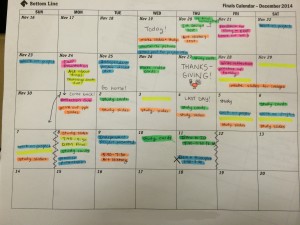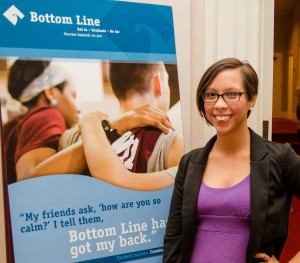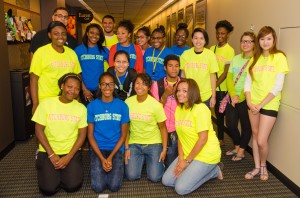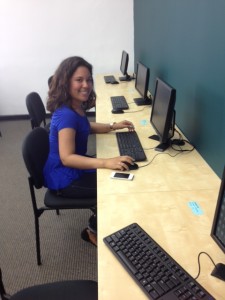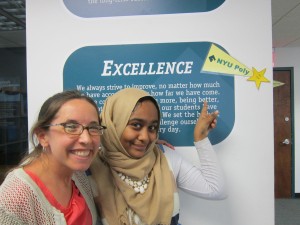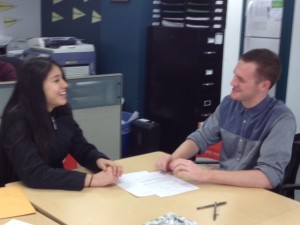As the fall semester comes to a close, Bottom Line-New York counselors are finishing up their final round of on-campus meetings to help students prepare for their finals. Read below for an account of the process and what it means to our staff and our students from one of our Success counselors, Courtney Ng:
“How are you?” I ask Kelly. Those three words, as common as they may be in daily life, mean something to our students. They know that when we ask them, we ask earnestly, seeking to help.
“Overwhelmed,” she answers, “there’s just so much to do.”
Her response is why I’m there. For the past three weeks, Bottom Line-New York counselors have been traveling to campuses all across the State to help students develop a solid plan to prepare for their upcoming final exams, papers, and projects. For our students, finals are the last opportunity to give their grades a boost. But finals prep, like all of the services we provide students, is important for a larger purpose – it’s an opportunity to help students strengthen the skills and traits they can carry with them long into the future.
In a finals prep meeting, we guide students through creating a calendar to map out their plans to prepare for finals. On a basic level, the act of calendaring when finals will take place helps students think about managing their time. Realizing they have three finals in two days triggers them to think about when they will have time to study and to consider starting to study sooner, if not right away. The meeting also challenges them to think about how they will study, taking into consideration the practices that have or have not been useful throughout the semester. For example, we often talk to students about how reading over notes is a passive form of studying, whereas making a study guide that synthesizes key ideas and facts is an active way to internalize information.
For some students, finals prep is a prime opportunity to talk about using their resources and seeking out help when they need it. We guide them to this realization by asking specific questions about their finals: what topics will be on exams, how comfortable they feel with the material, and whether they understand why they might not have performed well previously in the semester. If they are unsure of the answers, we nudge them. Ask your professors. Sign up for tutoring. Make an appointment at the writing center. Where can you get the help you need? When will you get it? In asking these questions, we challenge students to take responsibility for their own success and remind them that if they struggle, they don’t have to do so alone. We wish for students to walk away with more than a colorful roadmap for finals prep, but with the skills and confidence to guide them through the numerous obstacles to come later in life.
At the end of that 45-minute planning session, I often ask students how they feel now that they have a plan. Relieved, some say, that they now know what they need to do. Scared, say others, that things won’t go according to plan. You’re right, I tell them, they probably won’t.
In that moment, finals prep opens a conversation about a skill we value deeply at Bottom Line-New York: flexibility. We know that students won’t walk away and follow their plans to a tee. We know that distractions will arise and students will fall off track. This reality, I reassure them, is an opportunity to embrace a valuable life lesson, that even the best laid plans have to be reworked at some point. And when they do, when you need help, we are at the other end of the phone, ready to ask those same three words.
